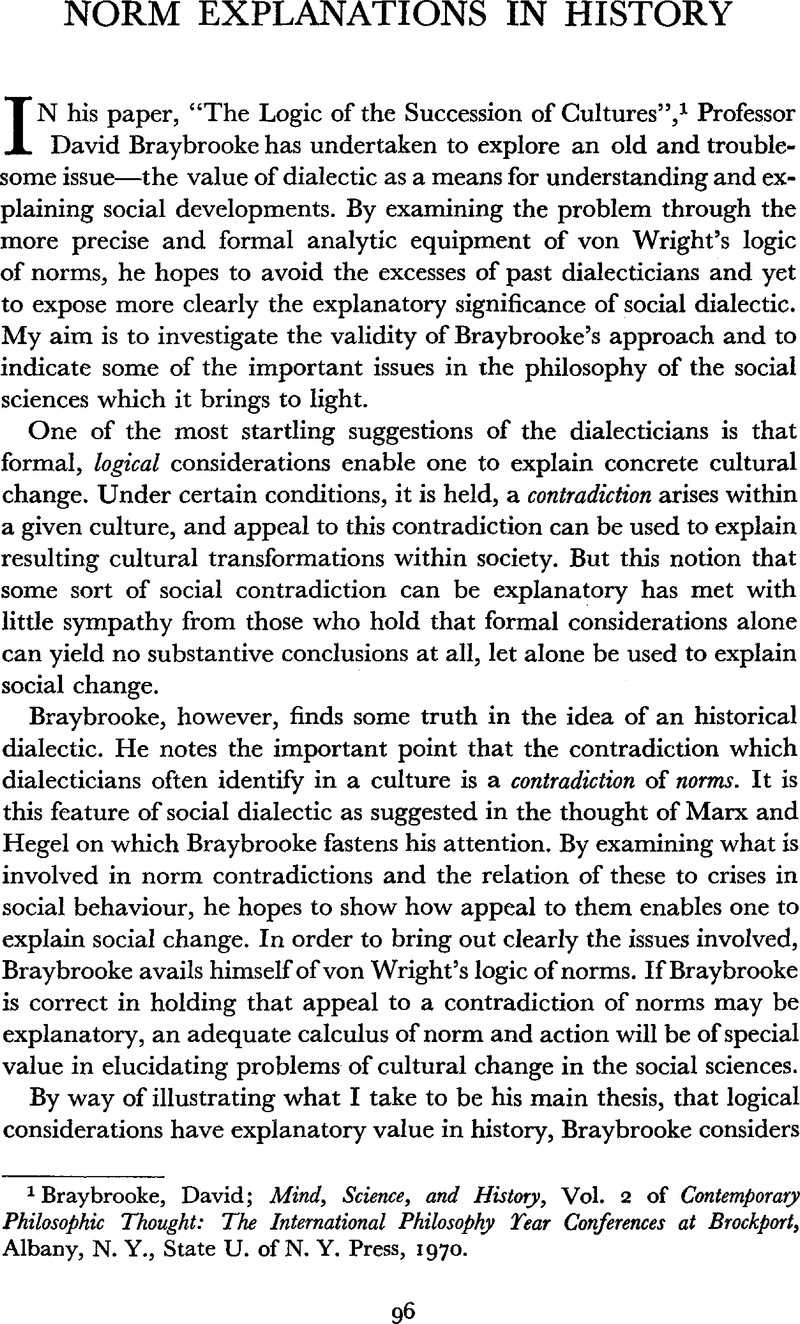No CrossRef data available.
Published online by Cambridge University Press: 01 March 1971

1 Braybrooke, David; Mind, Science, and History, Vol. 2 of Contemporary Philosophic Thought: The International Philosophy Tear Conferences at Brockport, Albany, N. Y., State U. of N. Y. Press, 1970.Google Scholar
2 Von Wright, G. H., Norm and Action, Routledge and Kegan Paul, London, 1963, p. 148.Google Scholar
3 This, I believe, is the point which Hempel is mainly urging in his often misunderstood writings on explanation in history (cf. his “Explanation in Science and in History” in Philosophical Analysis and History, ed. by W. H. Dray, Harper an d Row, 1966, page 117.) I think too that the explanation of the occurrence of an event must be distinguished from the explanation of some characteristic of an event known to have occurred, e.g. ‘it was a rational action’ To show that some behaviour was, say, rationally required by circumstances is not to explain the occurrence of this behaviour but rather to explain the existence of this property of the behaviour—its rationality—by giving good reason for believing that it had this property.
4 Engels, in Marx and Engels, Basic Writings, ed. by L. S. Feuer, Anchor Paperback, 1959, p. 84.
5 Hegel, , Philosophy of Right, trans, by Knox, T.M., Clarendon Press, Oxford, 1942. p. 34.Google Scholar